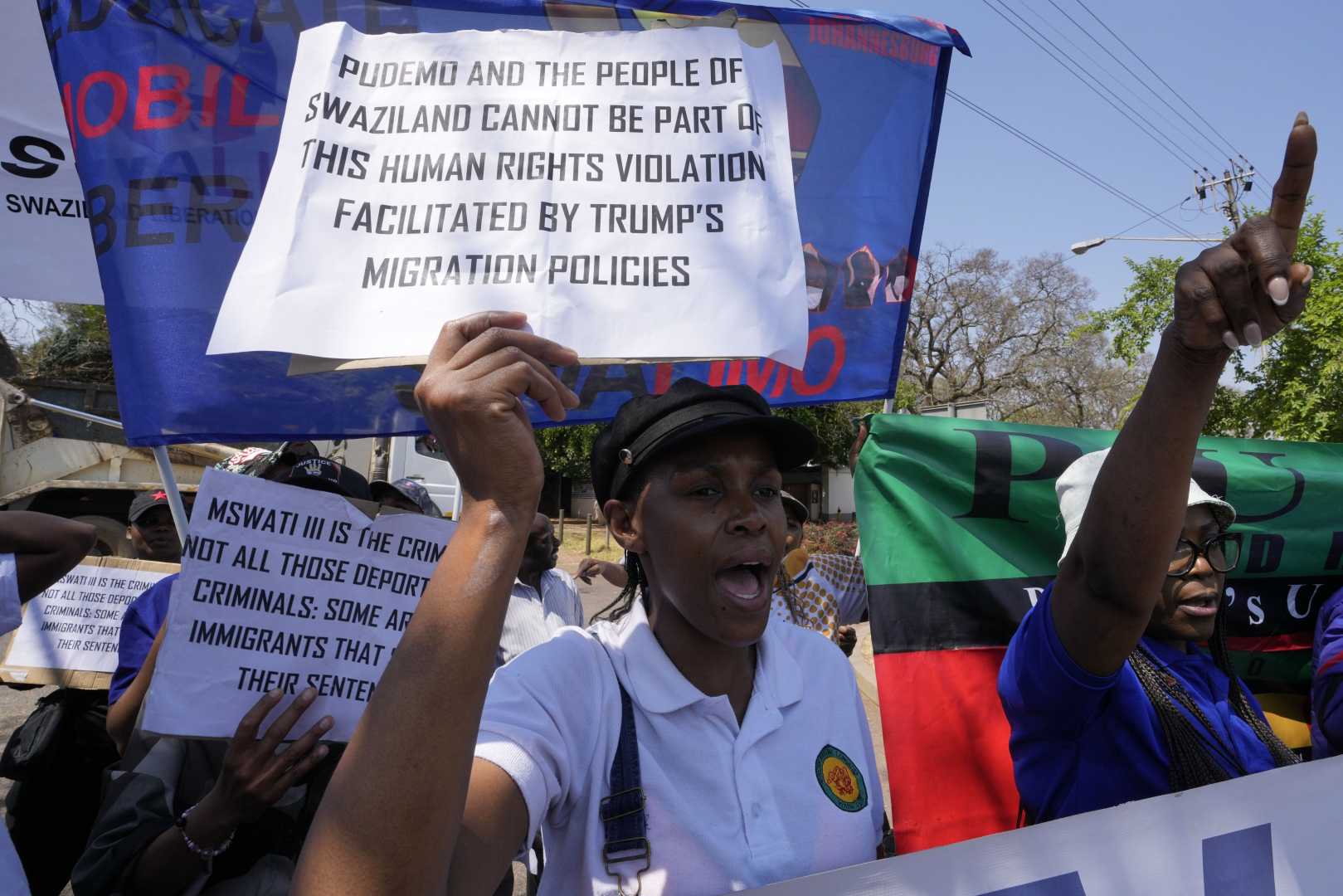News
Ten Migrants Deported from U.S. Arrive in Eswatini Amid Protests

MANZINI, Eswatini (AP) — A group of 10 migrants deported from the United States arrived early Monday in Eswatini, according to local authorities. This latest group is part of over 40 deportees sent to Africa since July under a controversial third-country deportation program initiated by the Trump administration.
The flight carrying the migrants originated in Alexandria, Louisiana, and stopped in Puerto Rico, Senegal, and Angola before reaching Eswatini. Tin Thanh Nguyen, a U.S.-based lawyer, represents two Vietnamese nationals who were among the deportees.
Nguyen confirmed that his clients had been held at the Alexandria Staging Facility before their deportation. He tracked their flight with the assistance of the human rights group, Human Rights First.
Eswatini’s government published a statement confirming the arrival of the deportees, stating they have been “securely accommodated in one of the country’s correctional facilities.” The government did not disclose the nationalities of the deportees or their specific location but assured the public that they are “in good health and undergoing admission processes.”
Earlier deportees from Cuba, Laos, Vietnam, and Yemen have been held in Eswatini’s maximum-security Matsapha prison for nearly three months. U.S. officials have characterized these individuals as convicted criminals with deportation orders.
Following this latest arrival, the Eswatini government emphasized its commitment to treating all individuals in its custody humanely. However, reports indicate that while some deportees have been allowed to make phone calls, restrictions prevent an Eswatini-based lawyer from visiting them, despite winning a court ruling to do so.
U.S. authorities have referred questions regarding the deportees’ treatment back to Eswatini’s officials. This small kingdom, bordered by South Africa, has faced criticism for its handling of democratic movements under the absolute rule of King Mswati III.
Human Rights Watch revealed that the U.S. agreed to pay Eswatini $5.1 million to accommodate up to 160 deportees as part of this program. Rights groups have raised alarms about the due process that these migrants could miss out on in their host countries.
Other countries involved in similar deportation agreements include South Sudan, Rwanda, and Ghana. Human rights organizations have reported grievances from deportees regarding their treatment in these countries.
Nguyen has called for an end to what he described as illegal third-country deportations, stating that his clients should not endure imprisonment in a country without proper legal representation or clear justification for their detention.












